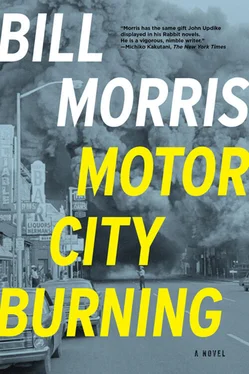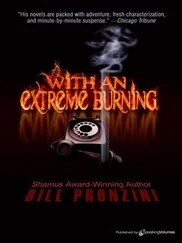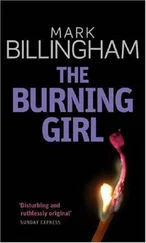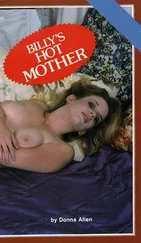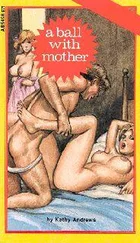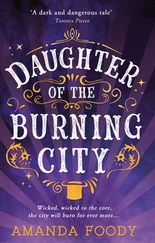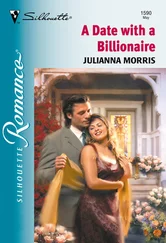“Whatchoo readin now, Professor?” Hudson said, looking up at Willie. The nickname was not meant to be flattering. Hudson had dropped out of the sixth grade, and he had no use for knowledge that came from anywhere other than the street. More than once he’d expressed the opinion that a fair-skinned bookworm like Willie would have made a perfect poster boy for the United Negro College Fund. Willie didn’t take it personally. He’d learned long ago that black people who can’t get at the real oppressor wind up lashing out at one another.
He looked at the book lying open on his chest. “It’s called Black Like Me .”
“What’s it about?” Hudson asked without interest. He was watching his ace boon coon Wiggins stack his winnings in a very neat, very tall pile. Hudson was smiling. Losing was delicious torture for him. It was his way of life.
“It’s about this white dude who dyes his skin and travels around the Deep South passing for a brother.”
“No shit,” Wiggins said, licking his thumb as he counted his pot. “Why some honky do a fool thing like that?”
“To find out first-hand what prejudice feels like. The book’s not bad. Only trouble is, the writer buys into that jive about race relations down South being a blot on the whole country. Like whitey’s treating us like princes up here.”
Hudson actually chuckled. “What this gray dude do bout his hair, Professor?”
“He shaved his head.”
“Ah.”
“Well,” Wiggins said, adding his winnings to his roll and tucking it into his tuxedo pants, “that ofay wanted to know about prejudice, he shoulda come see me. I could write a motherfuckin book about prejudice.”
He and Hudson guffawed and slapped hands, the poker game already a dim memory. Willie watched them, thinking that James Wiggins, with his fried hair, rhiney skin and bloodshot eyes, had probably never read a book from cover to cover in his life. The man couldn’t string two grammatical sentences together, let alone write a book. The whites of his eyes were the color of cold piss, and Willie guessed it was from something much worse than drinking.
Just then the swinging doors squealed open and Bob Brewer strode in, carrying his ocher waiter’s jacket, a white shirt and a pair of tuxedo pants in a dry-cleaner’s plastic bag. “Gentlemen, gentlemen,” he said, hanging the clothes in a locker. When he noticed Willie on the top bunk he said, “What up, Cuz?”
“Not much, Uncle Bob. What’s up with you?”
“If you get your narrow ass down off that bed and come outside, I’ll show you.”
Willie yawned and hopped down off the bed. He put his white shirt back on and, smoothing his hair, followed his uncle out the door and down the scabbed concrete hallway. This netherworld, the service end of the rambling clubhouse, smelled of rotten fruit and ammonia, stale beer and starch and steam. Willie thought of it as the second worst thing that had ever touched his nostrils: the stench of servitude. Bad as it was, though, it couldn’t touch the smell inside that garage at police headquarters last summer. That was in a league of its own: the stench of degradation.
As he passed the clattering ice machines, one of the bar boys went by pushing a cart stacked with cases of top-shelf liquor — Canadian Club, Cutty Sark, Beefeaters — the fuel for tonight’s festivities. All the busboys and waiters at Oakland Hills were black and all the bar boys and bartenders were white. The reason was obvious to Willie. Dick Kowalski didn’t think niggers could be trusted around all that pricey booze.
Willie was still yawning when he and his uncle stepped out of the clubhouse and into hazy sunshine. The day had turned almost hot and the trees beyond the caddy shack were bearded with green buds, aching to burst. Maybe winter really was over.
Uncle Bob led the way across the members’ parking lot to the employees’ lot. From fifty yards away Willie saw it, tucked off in the corner by itself. He knew right away it was his uncle’s car because of the way it gleamed, because everything about Uncle Bob was clean. He dressed conservatively and he was always freshly shaven, impeccably groomed, didn’t even have razor bumps. He wore his hair short and natural, like Willie’s, in that tasteful middle zone between Wiggins’s conk and Angela Davis’s big-ass black power Afro. It was obvious from the way Bob had parked the car off in the corner that he was gripped by the new car owner’s terror of sideswipes, door dings and bird droppings.
The car was a fully loaded, two-door 1968 Buick Electra 225 with a muted bronze paintjob and creamy vinyl top, elegant and understated, a far cry from the loud color schemes Willie was accustomed to seeing on cars in the city: lizard green, salmon pink, fire-engine red, burnt orange. And then, for good measure, some gaudy, fake-gold shit around the license plate, wide whitewall tires, spoke wheels, curb feelers, the finishing touches that announced to the world that this car was owned by a man who was black and damn proud of it. When Willie first got to town he thought those city brothers were unaware that the bulbous lines and gumball paintjobs that distinguished cars like his pink-and-black ’54 Buick had given way to something more subdued. Oh sure, the muscle cars drag racing up and down Woodward were a blur of candy-apple red and canary yellow. But those cars were driven by greasers, who weren’t even all the way white. It didn’t take Willie long to realize that the Detroit brothers had indeed heard the news. They simply chose to ignore it.
But Uncle Bob was different. His life was dedicated to blending in. He was as proud as any black man Willie had ever met, but he refused to give the white man fuel for the stereotypes that fed his racism. There was nothing flashy about Bob Brewer — the only jewelry he wore was a Timex watch and his wedding band. He rarely drank, and he didn’t gamble or smoke or take anything stronger than aspirin. So it was no surprise to Willie that his uncle’s new Buick would have been right at home in the members’ parking lot at Oakland Hills, alongside all the conservative, late-model Cadillacs and Lincolns and the hulking, wood-paneled station wagons favored by suburban housewives.
“Well, what do you think?” Bob asked, beaming.
“She’s a beauty, Uncle Bob.”
“You like the color?”
“Actually, I think you should’ve gone for chartreuse. Woulda fit your personality a lot better.”
Bob laughed at the jibe. “Guy on the lot where I bought it told me something interesting. You know where the name comes from?”
“Sure. Everybody with half an education knows Electra was a Greek chick from a messed-up family whose momma—”
“No, no, not the Electra part. The Two-Twenty-Five part.”
“Oh. Beats me. Is it the horsepower?”
“That’s what I thought, too. Come to find out that when Buick started using the Electra name back in ’59, the thing was two hundred and twenty-five inches long. Think about it — that’s damn near twenty feet long.”
This car wasn’t quite that long, but it was close. The relative lack of chrome and the sharp lines made it seem even bigger and longer than it was. There were four chrome notches in the front fender, which marked it a “four-holer,” a top-of-the-line Buick. The hood was huge, much flatter and longer and wider than the bulbous hood on Willie’s ’54 “three-holer,” and the trunk looked big enough to hold a Volkswagen. Or a couple dozen assault rifles.
“Hop in, let’s take her for a spin,” Bob said. It was the first time Willie had heard something like childish excitement in the man’s voice.
They headed east on Maple Road, then left at Lahser. At the touch of Bob’s foot the Buick shot into the warm afternoon, just ate up the road. Willie watched the orange speedometer needle climb effortlessly past 40, 50, 60, up to 70. Bob had the windows rolled up and the air-conditioning on, and Willie wondered if this wasn’t another of his strategies, like the muted paintjob, to keep from drawing attention to himself. This far north in the suburbs, a black elbow sticking out of an expensive new car’s window could attract something a lot worse than stares.
Читать дальше
